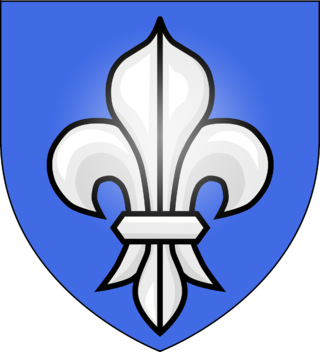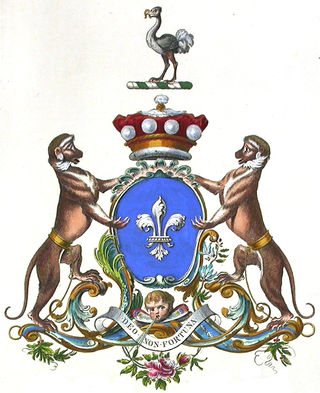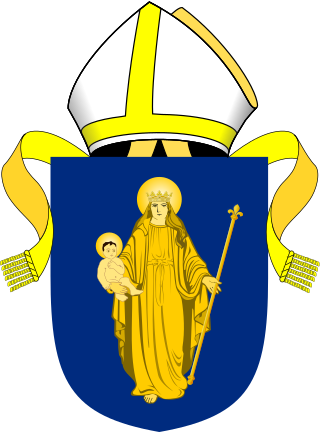Related Research Articles

Earl of Bristol is a title that has been created twice in British history, and was attested once before. Antiquaries Carew and Williams refer to Reginald de Dunstanville as Earl of Bristol. However, the first confirmed creation came in the Peerage of England in 1622 in favour of the politician and diplomat John Digby who served for many years as Ambassador to Spain, and had already been created Baron Digby of Sherborne, in the County of Dorset, in 1618, also in the Peerage of England. Digby was the brother of Sir Robert Digby of Coleshill, Warwickshire, whose son Robert Digby became 1st Baron Digby of Geashill in the Peerage of Ireland in 1620..

Earl of Ilchester is a title in the Peerage of Great Britain. It was created in 1756 for Stephen Fox, 1st Baron Ilchester, who had previously represented Shaftesbury in Parliament. He had already been created Baron Ilchester, of Ilchester in the County of Somerset in 1741, and Baron Ilchester and Stavordale, of Redlynch, in the County of Somerset, in 1747. These titles were also in the Peerage of Great Britain. All three peerages were created with remainder, failing heirs male of his own, to his younger brother Henry Fox, who was himself created Baron Holland in 1763. The brothers were the only sons from the second marriage of the politician Sir Stephen Fox.

Baron Digby is a title that has been created twice, once in the Peerage of Ireland and once in the Peerage of Great Britain, for members of the same family.

Chetnole is a village and civil parish in the county of Dorset in southern England. It lies approximately 6 miles (9.7 km) south-southwest of Sherborne and 5.5 miles (8.9 km) southeast of Yeovil in Somerset. It is sited on Oxford clay by the small Wriggle River at the western end of the Blackmore Vale. There are around 128 houses in the village. It has a railway station on the Heart of Wessex Line that is served by Great Western Railway services. Dorset County Council estimate that in 2013 the population of the parish was 330. In the 2011 census the population of Chetnole parish combined with the small parish of Stockwood to the west was 344.
John Digby, 1st Earl of Bristol, was an English diplomat and a moderate royalist during the English Civil War.

Dorset is a rural county in south west England. Its archaeology documents much of the history of southern England.

The Diocese of Salisbury is a Church of England diocese in the south of England, within the ecclesiastical Province of Canterbury. The diocese covers the historic county of Dorset, and most of Wiltshire. The diocese is led by Stephen Lake, Bishop of Salisbury, and by the diocesan synod. The bishop's seat is at Salisbury Cathedral.
Charles Herbert Mayo (1845–1929) was a Dorset clergyman and antiquarian.
The Lord Lieutenant is the monarch's representative in the English county of Dorset.

The Bishop of Salisbury is the ordinary of the Church of England's Diocese of Salisbury in the Province of Canterbury. The diocese covers much of the counties of Wiltshire and Dorset. The see is in the City of Salisbury where the bishop's seat is in the Cathedral Church of the Blessed Virgin Mary. The current bishop is Stephen Lake.

Stephen Fox-Strangways, 1st Earl of Ilchester PC was a British peer and Member of Parliament.

The Battle of Weymouth and the associated Crabchurch Conspiracy occurred in 1645, during the First English Civil War, when several royalist plotters within the twin towns of Weymouth and Melcombe on the Dorset coast conspired to deliver the ports back into the control of King Charles I.
Robert Oke, H.M. was the first chief inspector for the Newfoundland Lighthouse Service and served from at least 1848 to 1870. Oke installed the first light mechanism at the Cape Bonavista Light in 1842, and installed the famous Isle of May light mechanism at the Cape Pine Light in 1850, which was later moved to Harbour Grace Island and finally to Cape Bonavista, where it can be viewed today.
George Watson Hand was Archdeacon of Dorset from 1780 to 1801.
Henry Joliffe B.D. was Dean of Bristol from 1554 to 1559.
George Royse DD was Dean of Bristol from 1694 until his death.
The Dorset Militia was an auxiliary military force in the county of Dorsetshire in South West England. From their formal organisation as Trained Bands in 1558 until their final service as the Special Reserve, the Militia regiments of the county carried out internal security and home defence duties. They saw active service during the Second Bishops' War and the English Civil War, and played a prominent part in suppressing the Monmouth Rebellion. After being the first English militia regiment to reform in 1758, they served in home defence in all of Britain's major wars, including service in Ireland, and finally trained thousands of reinforcements during World War I. After a shadowy postwar existence they were formally disbanded in 1953.
The battle of Babylon Hill was an indecisive skirmish that took place between Royalist and Parliamentarian forces near Yeovil, in South West England, on 7 September 1642, during the early stages of the First English Civil War. The engagement occurred after a failed Parliamentarian siege of nearby Royalist-held Sherborne. After the Parliamentarians had retreated to Yeovil, a force of around 350 Royalists was sent to reconnoitre their movements. Under the command of Sir Ralph Hopton, the Royalist detachment established itself on Babylon Hill, on the outskirts of Yeovil.
References
- 1 2 3 4 5 6 7 8 9 10 11 12 13 "Obituary: Edward Boswell, Esq". The Gentleman's Magazine . 2nd ser. 19: 95–96. 1843.
- ↑ Cooper, Thompson (1886). . In Stephen, Leslie (ed.). Dictionary of National Biography . Vol. 5. London: Smith, Elder & Co.
- 1 2 3 4 5 6 7 8 Harris, Jonathan (2004). "Boswell, Edward". Oxford Dictionary of National Biography (online ed.). Oxford University Press. doi:10.1093/ref:odnb/2949.(Subscription or UK public library membership required.)